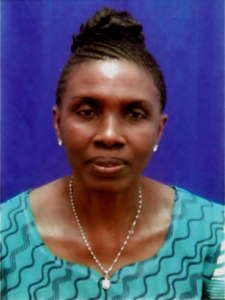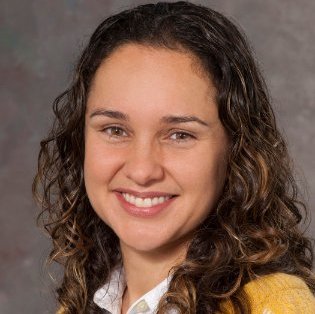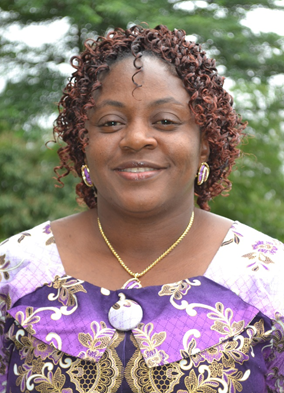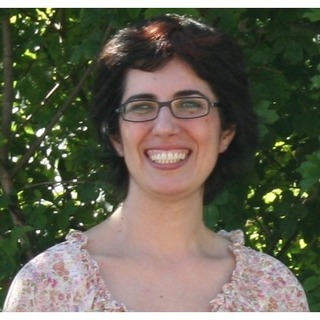Tuesday 13th October was Ada Lovelace Day, an international celebration of women in science, technology, engineering and maths (STEM) in honor of Ada Lovelace, the first computer programmer.
To highlight the achievements of women in STEM we’ve spoken to female plant scientists around the world about their careers and experiences. Read on for Part II of the series (for Part I, click here):
Professor Kalunde Sibuga
Sokoine University of Agriculture, Tanzania
What are you working on?
I have always been interested in working with farmers who have limited resources and coming up with production technologies that can help reduce their workload (particularly for women) and dependence on purchased inputs such as fertilizers, herbicides and other pesticides. These interests led to a research career focusing on weed management and agronomy of legumes, vegetable crops and cereals.
Have you ever faced any specific challenges as a female scientist in Tanzania?
Not particularly, because policies in Tanzania encourage girls to go to school and do whatever they are able to do. Women in science in my country are not targeted for discrimination, but until recently, certain sections of science such as engineering were considered a male domain. The government aims for gender equality and funds various projects to encourage girls to take science subjects, which have assisted in increasing enrolment of girls in universities.
What are your hopes and goals for the future?
I have always believed that whatever we do, our aim should be to increase productivity, reduce drudgery and increase household income. This can only be achieved if governments, particularly African governments, would take a serious look at mechanization, timely delivery of inputs, marketing, and value addition aspects. Our work in agronomy is of no great benefit if the other components are not properly and appropriately addressed.
Weed Science and Management are not as well staffed as other branches of crop protection such as entomology and plant pathology. My goals for the future are therefore to continue to train and encourage young scientists to engage in weed research.
Associate Professor Siobhan Brady
University of California, Davis, USA
Could you give a brief overview of your research into root development?
My lab explores the development of root cell types, and the gene regulatory mechanisms and networks that are responsible for producing them. We are also interested in how different species and stresses have different networks in order to adapt to different environments. We love to utilize genome-scale data and systems approaches to understand how these systems are organized.
Have you faced any specific challenges as a woman in science?
Yes. Finding the right time to have a baby is one example. I ended up having my first child five months into my position as a PI and the experience was one of the most challenging in my life. I was trying to find my feet being a new mum at the same time as being a new lab leader, writing grants and teaching. I even felt “guilty” (purely self-imposed) for starting my position by having a baby and felt that I had so much to prove by being able to get this position at a time when getting faculty positions was incredibly challenging. I went back to work full time after six weeks. Nursing, working, and travelling was very hard, but I made it. I had the support of my partner and of an incredibly wonderful lab and colleagues. Looking back in fact, I wish I’d opened up to them a little more.
I now have two beautiful boys. I have had to cut some of my work responsibilities (for instance, picking and choosing which weekly meetings are really the most important to attend). It has changed our lives, but learning to be flexible (not always easy for me!) and finding the unique advantages in each challenge that faces us has been a tremendous learning experience.
What would you say is the general experience of women in science in the US?
So much better than it once was. When I started in science I knew of very few female faculty members with children. Now there are many more incredible mentors who have families, are very successful and maintain a good work-life balance.
That being said, given the current funding situation in the US and the general economy there are fewer and fewer faculty jobs available. Many graduate students and postdocs have presented their concerns to me that raising a family and having a successful career are inherently incompatible in this era – that is, that you will always be so busy that something will fail.
It is hard to figure out when to have children. If you have a grant, there is no allowance for your graduate students or postdocs to take leave, but you are mandated to take some leave (as you should be). This is a real challenge, both for PIs and for students/postdocs, as there is really only a limited amount of time to get a project done and to have a mother stay with an infant. I don’t know of a good way to handle this other than to always have open communication with people in your group and to let them know (if a PI) that you support them in their life goals, no matter what they are, while encouraging them to be the best they can be.
What are your goals for the future?
Raise happy, well-adjusted children, continue to train amazing scientists, learn different fields of research and ask new and creative biological questions. And of course, publish well and get funded sufficiently so that our work can make a difference in science and the world in general!
Thank you to both Professor Kalunde Sibuga and Associate Professor Siobhan Brady for taking the time to discuss their experiences with us.
Please leave a comment below and describe any challenges or opportunities you have observed for women in science in your country!







